Health Articles
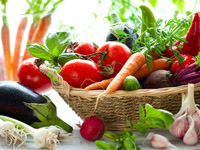 |
Healthy Diet Reduces Cancer Risk by 75% in StudyHealthy eating reduced cancer risk by a stunning 75% in older women who consumed the most of these foods in their daily diets.Discover More >> |
|
|
|
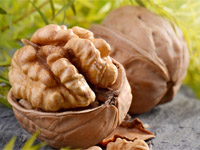 |
Walnut Proteins Found Toxic to Breast Cancer CellsResearchers have discovered yet another surprising benefit from eating walnuts. Their proteins have been found to be so toxic to breast cancer cells, they slowed their growth by 75%.Discover More >> |
|
|
|
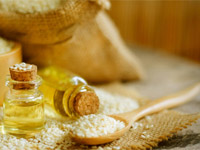 |
Sesame Seed Oil May Reduce Breast Cancer Risk by 42%Sesame seed oil adds a delicious flavor to any stir fry or salad. And now researchers have found that women using it regularly have 42% less risk of breast cancer. Tahini may offer similar benefits.Discover More >> |
|
|
|
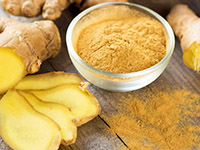 |
Ten Clinically Proven Health Benefits of GingerYou may know ginger as a warming herb that decreases nausea. But it's known for so much more than that in Asia, where it's been used for over 4,000 years as herbal medicine to treat everything from arthritis...Discover More >> |
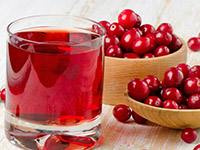 |
10 Little-Known Health Benefits of CranberriesCranberries grow wild in the USA and Canada, and have been used for centuries by Native Americans as both food and medicine. Early European explorers quickly learned of their health benefits and made them part...Discover More >> |
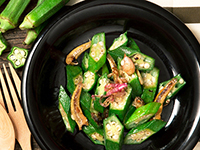 |
Okra shows promise in fighting breast cancer and prostate cancerOkra has already become a well-known superfood against diabetes but few people know that it also fights at least three different types of cancer. The research on okra for cancer is still very young, but...Discover More >> |
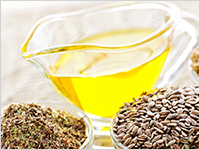 |
Flax seed consumption may reduce breast cancer risk by 28 percentIn the first-ever study of its type, Canadian researchers have shown that flax seed consumption reduces the risk of breast cancer by 28 percent in postmenopausal women and flax bread consumption...Discover More >> |
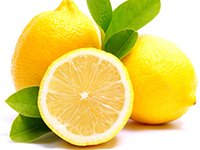 |
Natural lemon extract is cytotoxic to breast cancer cellsA new study has shown for the first time how limonoids, natural compounds present in lemons and other citrus fruit, impede both ER+ and ER- breast cancer cell growth. This sheds new light on the importance of...Discover More >> |
 |
Okra is discovered to be a powerful natural antidepressantOkra has become well-known recently as a superfood against diabetes, prompting many people to give it a try. If you’ve felt an unexpected boost to your mood from okra, there may be more to it than just good...Discover More >> |
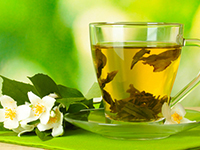 |
Preventing Cancer with Green Tea: How Much is Needed?If you take green tea to reduce your risk of cancer, are you really getting enough? Up until recently, population studies have had mixed results, making it difficult to give clear-cut guidelines on green tea intake...Discover More >> |
 |
Onion Extract Drastically Slows Cancer Growth in New StudyResearchers have just discovered that flavonoids extracted from common onions slowed the rate of colon cancer growth in mice just as effectively as a chemotherapy drug. And while the mice on chemo saw...Discover More >> |
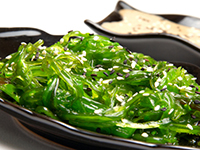 |
Seaweed May be a Breast Cancer Super FoodSeaweed is known to be exceptionally rich in iodine, but did you know it's also brimming with rare antioxidants such as fucoidan and fucoxanthin? These directly suppress a variety of cancer cells in lab studies...Discover More >> |
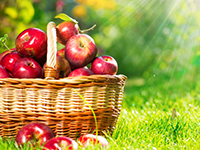 |
Researchers Uncover How Apples Prevent Colon CancerApples are the most researched fruit of all for cancer prevention, and in multiple population studies have been shown to reduce the risk for lung cancer, breast cancer, pancreatic cancer...Discover More >> |
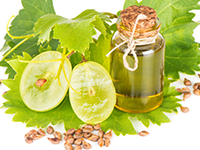 |
Grape Seed Extract Reduces Risk of Prostate, Blood and Skin CancerThe therapeutic potential of grape seed extract (GSE) as anti-oxidant, anti-hypertensive and anti-inflammatory is so well established that this natural supplement is now being used in seven on-going clinical...Discover More >> |
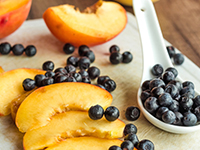 |
Peaches, nectarines and berries sharply lower breast cancer riskWomen consuming at last two servings weekly of peaches or nectarines saw a stunning 41 percent risk reduction for postmenopausal ER- breast cancer, while those eating at least one serving of...Discover More >> |
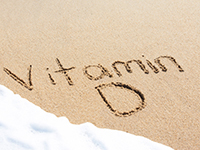 |
Magnesium boosts vitamin D’s protection from heart disease, cancer and deathNew research has shown that magnesium is so important for the proper use of vitamin D in your body, it can actually boost vitamin D’s protection from fatal heart disease and...Discover More >> |
 |
Green tea plus citrus provides new level of cancer protectionA large study was recently carried out in Japan to assess citrus fruit consumption as a means of preventing cancer. The results were surprising: citrus fruit consumption led to a markedly lower risk for multiple...Discover More >> |
 |
Pomegranate may inhibit metastatic breast cancerPomegranate juice is already known to be active against several cancers, but a new study out of California has just shown for the first time that it potently inhibits three key processes involved in breast cancer...Discover More >> |
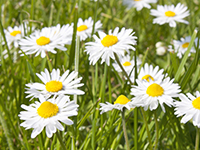 |
Top Five Natural Remedies for AllergiesMillions of allergy sufferers depend on antihistamines on a daily basis to get relief from their symptoms. Unfortunately many antihistamines carry unwanted side effects—and are certainly not cheap. But...Discover More >> |
 |
Green Tea Supplements Reduce Flu Risk by 75% in Clinical TrialFlu season is now in full swing, so it's never been more important to eat a healthy diet, get enough rest, and practice proper hygiene to avoid getting sick. But did you know that green tea can also help...Discover More >> |
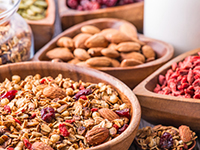 |
Magnesium reduces the risk of colon and pancreatic cancersThe role of magnesium in cancer is quickly gaining interest among researchers because of recent studies showing protective effects against multiple cancers. The most recent studies have shown that every additional...Discover More >> |
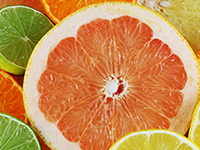 |
Citrus fruit may reduce breast cancer risk by up to 32 percentA high intake of citrus fruits lowers breast cancer risk in women by 10 percent, according to a new systematic review of past studies. But importantly, “high” intake was only 17 to 33 grams daily in one of...Discover More >> |
 |
Vitamin D: How to Maintain Healthy Levels During WinterNow that winter is setting in, your vitamin D level is dropping just when you need it the most. In fact, the average American’s level will drop well into the deficiency zone, increasing risk of illness, cancer, and...Discover More >> |
 |
Yerba Maté Cuts Breast Cancer Risk in New StudyYerba maté is a tea made from the leaves of the tree Ilex paraguariensis A. St.-Hilaire. It's widely consumed in South America, particularly in Brazil, Argentina, Chile, Paraguay and Uruguay...Discover More >> |
DISCLAIMER: All information on this website, including research articles, is for information purposes only and is not meant as a recommendation to buy or use any nutritional supplement, healthcare product or service of any type. Ethan Evers does not provide medical advice directly or through recommended or linked materials, articles etc. All matters regarding your health require medical supervision and advice from an appropriately licensed medical practitioner.





